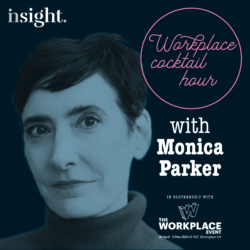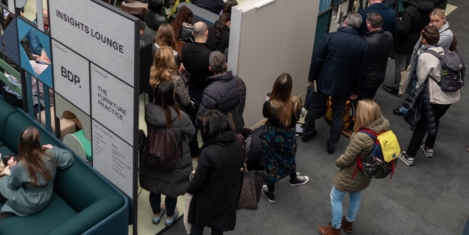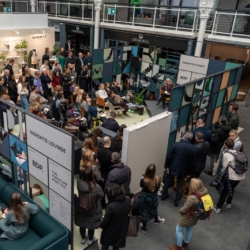To provide the best experiences, we use technologies like cookies to store and/or access device information. Consenting to these technologies will allow us to process data such as browsing behaviour or unique IDs on this site. Not consenting or withdrawing consent, may adversely affect certain features and functions.
The technical storage or access is strictly necessary for the legitimate purpose of enabling the use of a specific service explicitly requested by the subscriber or user, or for the sole purpose of carrying out the transmission of a communication over an electronic communications network.
The technical storage or access is necessary for the legitimate purpose of storing preferences that are not requested by the subscriber or user.
The technical storage or access that is used exclusively for statistical purposes.
The technical storage or access that is used exclusively for anonymous statistical purposes. Without a subpoena, voluntary compliance on the part of your Internet Service Provider, or additional records from a third party, information stored or retrieved for this purpose alone cannot usually be used to identify you.
The technical storage or access is required to create user profiles to send advertising, or to track the user on a website or across several websites for similar marketing purposes.
 AI-focused roles now make up 27 percent of all tech jobs being advertised in the UK, according to a new report from Thomson Reuters. An analysis of 6,073 live tech roles advertised online in January 2024 found that 1,652 roles fundamentally required AI skills. Demand for talent with relevant skills has boomed in the last year with the rise of generative AI tools offering significant boosts to productivity and efficiency in the workplace. (more…)
AI-focused roles now make up 27 percent of all tech jobs being advertised in the UK, according to a new report from Thomson Reuters. An analysis of 6,073 live tech roles advertised online in January 2024 found that 1,652 roles fundamentally required AI skills. Demand for talent with relevant skills has boomed in the last year with the rise of generative AI tools offering significant boosts to productivity and efficiency in the workplace. (more…)







 Monica Parker joins Mark Eltringham to share an Old Fashioned while discussing how to find wonder in the everyday, the limits of workplace design, our renewed obsession with productivity, how to achieve flow states in a world of distractions and what it means to be truly happy. There’s not much workplace news around right now as people are still finding their feet after Christmas, so we also explore some lessons we might take from the Post Office scandal about how organisations go wrong and the role of human nature in creating toxic cultures.
Monica Parker joins Mark Eltringham to share an Old Fashioned while discussing how to find wonder in the everyday, the limits of workplace design, our renewed obsession with productivity, how to achieve flow states in a world of distractions and what it means to be truly happy. There’s not much workplace news around right now as people are still finding their feet after Christmas, so we also explore some lessons we might take from the Post Office scandal about how organisations go wrong and the role of human nature in creating toxic cultures. 






 A new poll claims that over one quarter (26 percent) of employees in the UK do not trust their CEO to be open and honest, while 24 percent do not trust their senior leadership to do the same. According to the survey of 2,000 employees in the UK from Personio, transparency and employer-employee communication are pivotal to a positive employee experience and trust in the workplace. The research suggests that feeling unheard by leadership could be fuelling employees’ distrust. Over a quarter (28 percent) of employees surveyed say that they are not given a chance to share feedback to leadership on their experiences. Meanwhile, less than half (46 percent) of employees feel that leadership in their organisation actually listens and acts on any feedback when given from staff.
A new poll claims that over one quarter (26 percent) of employees in the UK do not trust their CEO to be open and honest, while 24 percent do not trust their senior leadership to do the same. According to the survey of 2,000 employees in the UK from Personio, transparency and employer-employee communication are pivotal to a positive employee experience and trust in the workplace. The research suggests that feeling unheard by leadership could be fuelling employees’ distrust. Over a quarter (28 percent) of employees surveyed say that they are not given a chance to share feedback to leadership on their experiences. Meanwhile, less than half (46 percent) of employees feel that leadership in their organisation actually listens and acts on any feedback when given from staff. 


 Proper management of employee health and wellness is an important facet to consider when striving for success in the workplace. Properly supporting employee health helps them perform better, encourages productivity, prevents losses from absences, enhances job satisfaction, and improves overall morale. Employers can promote employee wellness in different ways, but one area you should consider prioritising is eye care in the workplace.
Proper management of employee health and wellness is an important facet to consider when striving for success in the workplace. Properly supporting employee health helps them perform better, encourages productivity, prevents losses from absences, enhances job satisfaction, and improves overall morale. Employers can promote employee wellness in different ways, but one area you should consider prioritising is eye care in the workplace. 














January 16, 2024
Technology is stealing your time in ways you may not realise
by Ruth Ogden, Joanna Witowska and Vanda Cernohorská • Comment, Technology, Wellbeing